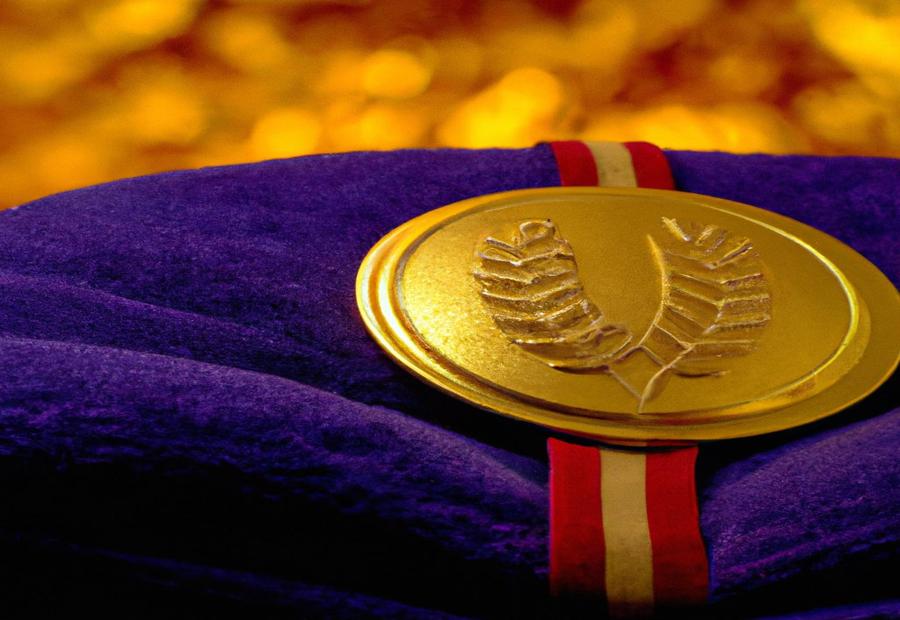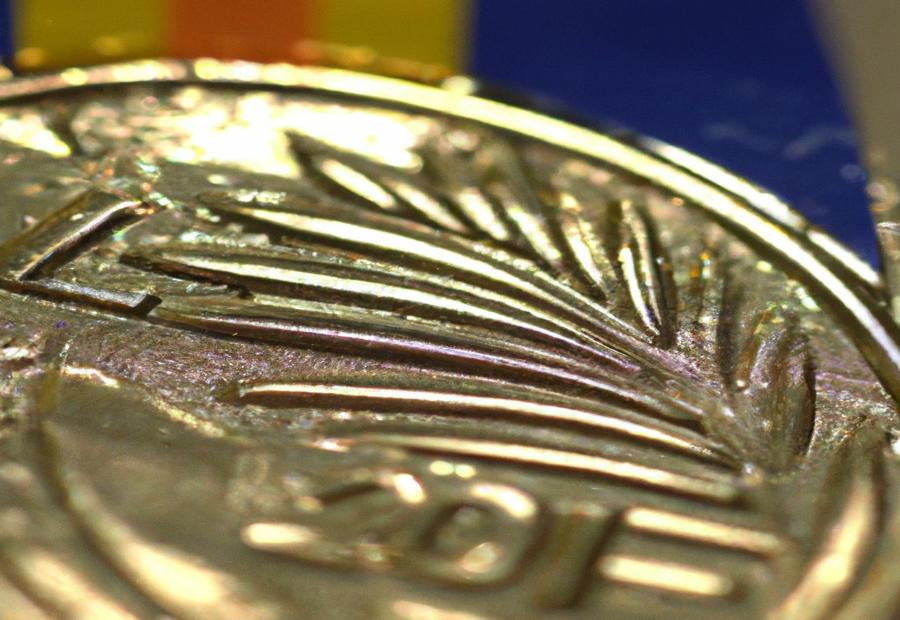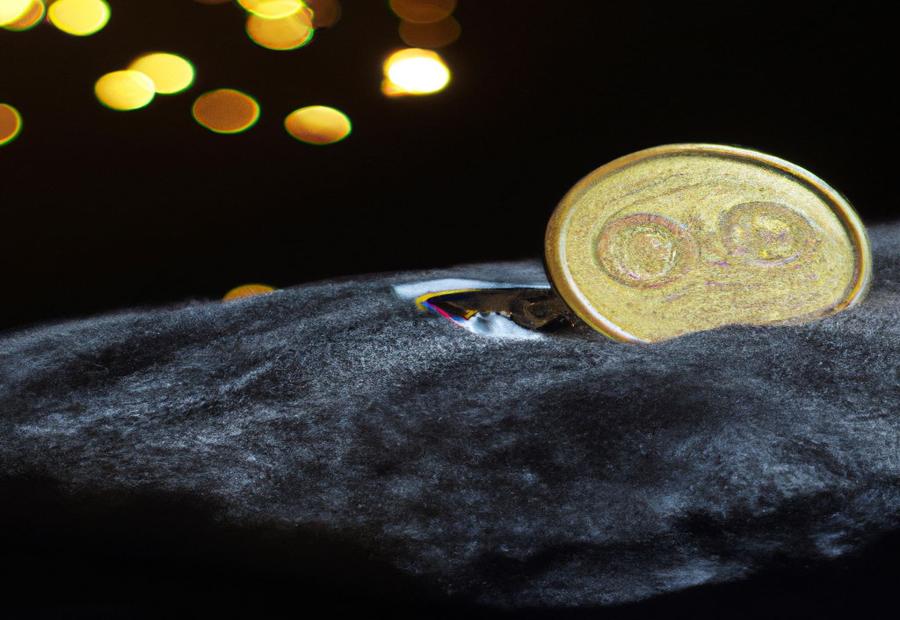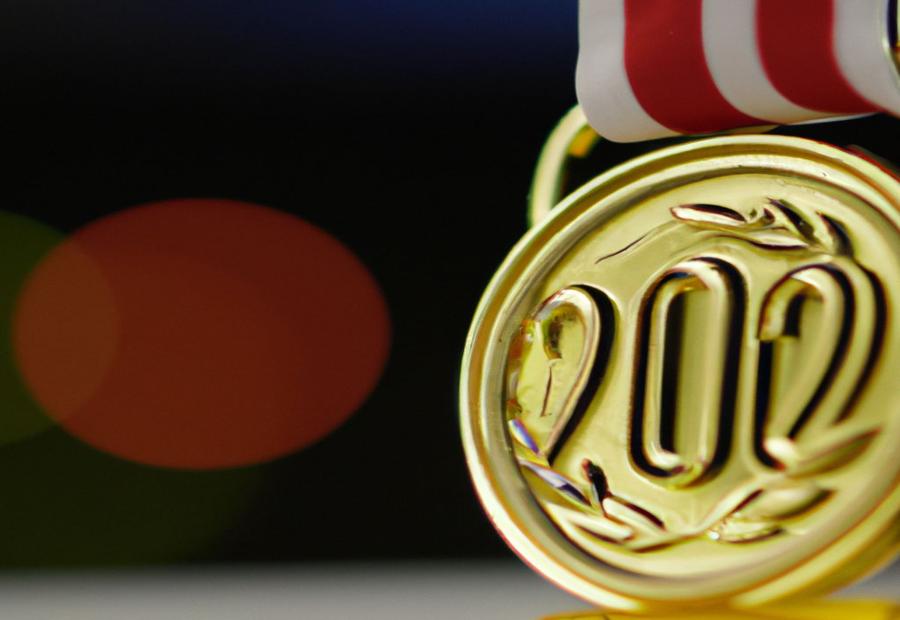Key Takeaways:
- Olympic gold medals have both monetary and non-monetary value.
- The monetary value of Olympic gold medals is determined by factors such as the price of gold per ounce and whether the medal is gold-plated silver.
- Some Olympic gold medals hold additional value due to their historical significance or rarity as precious medals.
- Deciding whether to sell or donate an Olympic gold medal may depend on personal financial circumstances.
Related Post:
Miles Franklin Precious Metals Review
What Is a Gold $100 Bill Worth
How Much Is a Daric of Gold Worth Today
Photo Credits: Ecopolitology.Org by Thomas Taylor
Olympic gold medals hold immense significance beyond just their monetary value. In this section, we will explore the fascinating history behind these coveted awards and delve into the non-monetary value that Olympic gold medals represent. (Reference: Olympic Gold Medals: A Symbol of Excellence and Achievement)
History of Olympic Gold Medals
Olympic gold medals have always held great value – both in terms of prestige and symbolism. They are the ultimate achievement for an athlete, signifying excellence and dedication. The history of these medals dates back to ancient Greece, where victors were crowned with wreaths made of wild olive leaves. As the modern Olympics gained traction in the late 19th century, gold medals became the tangible representation of victory.
Non-monetary value of Olympic gold medals can’t be underestimated. They carry the weight of hard work, sacrifice, and determination. For athletes competing at the highest level, winning a gold medal is often the result of a lifelong dream and many hours of training. It symbolizes not only personal achievement, but also national pride.
In addition, these medals possess a monetary worth as gold has a high value per ounce. While they are not solid gold, their composition still contributes to their value. Vintage or historically significant gold medals may be worth more among collectors or at auction houses. Also, if an Olympic champion becomes famous outside of sport, their gold medal may increase in value due to their fame.
Olympic gold medals may not pay the bills, but they sure are perfect for showing your ex what they’re missing!
Non-Monetary Value of Olympic Gold Medals
The value of Olympic gold medals cannot be measured in money. These symbols of athletic excellence hold great sentimental and historical meaning. They exemplify the dedication, hard work, and perseverance of the athletes who win them.
Since 1896, these awards have become symbols of athletic prowess and national pride. They have a rich history and serve as reminders of athletes’ triumphs and remarkable feats. Olympic gold medals have a special importance in the world of sports.
Apart from their historical and symbolic value, these medals carry immense sentimental value for athletes. They represent years of training, hard work, and countless hours of practice. The emotional attachment to an Olympic gold medal cannot be expressed in terms of money.
These medals not only have personal value, but also inspire future generations to aim for greatness. They remind people of what can be achieved through hard work and determination. The non-monetary value of Olympic gold medals is immeasurable.
Many athletes choose to keep their gold medals, instead of selling or donating them. These mementos symbolize their sporting accomplishments and milestones. Selling or donating them could diminish their symbolic value.
In some cases, financial hardship or charitable causes may lead athletes to consider parting with their medals. In such cases, it is important to consider both the monetary and non-monetary value. The decision to sell or donate an Olympic gold medal is deeply personal.
The Monetary Value of Olympic Gold Medals
Photo Credits: Ecopolitology.Org by Daniel Campbell
When it comes to Olympic gold medals, have you ever wondered about their monetary value? In this section, we will explore the intriguing topic of the monetary value of Olympic gold medals. From the gold value per ounce to the intriguing concept of gold-plated silver medals, get ready to uncover the fascinating facts and figures behind the worth of these prestigious symbols of achievement.
Gold Value Per Ounce
The value of gold per ounce is crucial for Olympic gold medals. Gold is a precious metal with a long history. It’s rare and has unique properties that make it desirable.
As of [reference date], the price of gold per oz was around [price]. This changes based on market demand and economics. People trade gold as a commodity on exchanges worldwide.
Olympic gold medals are made of gold plated silver. Usually, the base material is sterling silver and then coated with gold. This adds to the medal’s beauty and keeps it sturdy.
Not all gold medals have the same worth. Some may have extra historical or cultural value, which can raise their price in collector’s circles. For example, an Olympic gold medal won by a famous athlete or from a significant sporting event, may cost more at auction.
It’s gold plated silver – almost there, but not quite!
Gold Plated Silver Medals
To understand Gold Plated Silver Medals better, let’s check this table:
| Medal Composition | Primary Metal | Plating Metal |
|---|---|---|
| Gold Plated Silver Medals | Silver | Gold |
We can see from the table above that these medals have a silver core and a gold layer. This creates an eye-catching medal with both silver and gold elements.
Moreover, Gold Plated Silver Medals have special value due to their composition. Silver and gold form the basis of the medal’s intrinsic value, depending on the market prices of these metals.
This combination of precious metals makes Gold Plated Silver Medals very desirable for collectors and fans. The inclusion of both silver and gold adds a prestigious feel to these medals, making them more valuable than traditional silver or gold-plated medals.
Examples of Valuable Olympic Gold Medals
Photo Credits: Ecopolitology.Org by Ralph Miller
In the world of Olympic gold medals, there are some exceptional examples that hold immense value and significance. From historical milestones to rare designs, these coveted medals have become true gems for collectors and sports enthusiasts alike. Join us as we explore some of the most valuable Olympic gold medals, each holding a fascinating story and embodying the spirit of champions.
Valuable Olympic Gold Medals
A table featuring Olympic gold medals would include columns such as Athlete’s Name, Year of Olympics, Event, Country, and Estimated Value. This would offer an overview of the medal’s historical context. Such details include the athlete’s name, the year and event won, their country of origin, and an approximate estimation of its value.
Factors also affect the value of these medals. Customization or unique design elements make the medals more alluring and valuable. Moreover, medals associated with renowned athletes and groundbreaking records tend to cost higher in the market. All these factors make Olympic gold medals iconic symbols and prized possessions. Collectors worldwide cherish them.
Precious Medal
Olympic gold medals have a value that goes beyond the monetary. They are known as “Precious Medals” due to this. A few factors give these medals extra worth:
- Historical Significance: Linked to ancient Greece, Olympic gold medals carry a legacy of honor and prestige.
- Symbolism: Gold is a symbol of wealth and success. Olympic gold medals, made with gold-plated silver, embody this.
- Rarity: Few athletes win these medals in each Olympics, so they’re highly sought after.
- Emotional Value: Winning an Olympic gold medal means years of sacrifice, training, and perseverance. This emotional attachment adds to its preciousness.
Remember, when discussing the value of an Olympic gold medal, consider not only its monetary worth but also the intangible qualities. These memories and achievements are the real gold. Plus, a financial boost never hurts!
The Decision to Sell or Donate Olympic Gold Medals
Photo Credits: Ecopolitology.Org by Jacob Hall
Deciding whether to sell or donate Olympic gold medals can be a tough choice, especially in cases of financial hardship. Let’s explore the factors and considerations involved, and how athletes have navigated this decision in the past.
Financial Hardship
Financial woes can come from various things that make it hard for someone to meet their financial demands and live comfortably. These issues can include job loss, unexpected medical costs, or any other unforeseen events that affect one’s income and fiscal security. In the context of Olympic gold medals, financial hardship may make athletes think of selling or giving away their medals to ease their financial burden.
When suffering from money problems, some Olympic gold medalists may choose to sell their medals as a way to get instant cash. The worth of Olympic gold medals is determined by factors such as the value of gold per ounce and whether the medal is solid gold or gold-plated silver. Before making any decisions regarding sale, athletes must evaluate the possible value of their medals.
In addition to their tangible financial value, Olympic gold medals have immense non-monetary worth. These medals signify exceptional athletic accomplishment and stand for commitment, tenacity, and excellence in sports. This is why many athletes connect sentimental value to their medals and may be reluctant to part with them even in times of financial crisis.
It is necessary for people facing financial hardship to carefully consider their choices before deciding to sell or donate their Olympic gold medals. Although selling a medal can offer immediate relief from money troubles, it also means giving up a treasured symbol of one’s sporting success. On the contrary, donating a medal can turn it into a meaningful contribution to a charitable cause but may not bring the same level of financial support.
Pro Tip: If you find yourself in the position of considering selling or donating your Olympic gold medal due to financial hardship, it can be useful to seek advice from professionals who specialize in sports memorabilia or financial planning. They can help you through the process and aid you in making an informed decision based on your individual circumstances and goals.
Conclusion
Photo Credits: Ecopolitology.Org by Mason Allen
The worth of an Olympic gold medal goes beyond money. It’s the highest athletic achievement, symbolizing years of hard work. The glory of winning a gold medal is unmatched, giving athletes status and chances for endorsements, sponsorships, and lucrative options. The gold medal also has a special place in the hearts of athletes; it’s a reminder of their accomplishments and unforgettable moments on the Olympic stage.
The material value of an Olympic gold medal is in the precious metal it’s made of. But its true value is much more than that. It stands for dreams, sacrifices, and victories, that inspire generations. Its value is eternal and immeasurable.
Also, gold medals can bring financial rewards to athletes. They may get sponsorships and endorsement deals, leading to wealth. These collaborations give athletes financial security and a platform to use their success and influence. The fame of being a gold medalist opens doors to coaching, broadcasting, and public speaking, giving them more financial chances.
Throughout history, Olympic gold medalists have used their success to become famous and wealthy. Michael Phelps, Usain Bolt, and Simone Biles are examples of this. Their gold medals acted as a launching pad into global stardom and riches. This shows that the value of an Olympic gold medal lives on, setting athletes up for financial stability.
Some Facts About What Is an Olympic Gold Medal Worth:
- ✅ Olympic gold medals are required to be at least 92.5% silver and are plated with about 6 grams of pure gold. (Source: Team Research)
- ✅ The gold medals at the Beijing 2022 Olympics are worth approximately $758 in gold and silver. (Source: Team Research)
- ✅ The gold medals at the Tokyo Games in 2021 were worth about $800 in gold and silver. (Source: Team Research)
- ✅ Athletes have sold their medals in the past for financial reasons or to raise money for charities. (Source: Team Research)
- ✅ The value of Olympic medals depends on factors such as the year, color, and the athlete who won it. (Source: Team Research)
FAQs about What Is A Olympic Gold Medal Worth
What is the composition of Olympic gold medals?
Olympic gold medals are required to be at least 92.5% silver and plated with about 6 grams of pure gold.
How much are the gold medals at the Tokyo Games and Beijing 2022 Olympics worth?
The gold medals at the Tokyo Games in 2021 and Beijing 2022 Olympics are worth about $800 and $758 in gold and silver, respectively.
Have athletes ever sold their Olympic gold medals?
Yes, athletes have sold their Olympic gold medals in the past, either for financial reasons or to raise money for charities.
What is the value of Olympic gold medals?
While Olympic gold medals have sentimental value, their actual worth based on their raw materials is not as high as expected due to factors such as the price of gold and silver.
Are Olympic gold medals made entirely of gold?
No, Olympic gold medals are mostly made of silver with a gold plating on the outside. They are required to contain a minimum of 6 grams of pure gold.
What is the design and significance of Olympic medals?
Olympic medals feature the five rings symbol, the Greek goddess of victory Nike, and the official name of the respective Games. They vary in design over the years and hold significant value as a symbol of the pinnacle of athletic achievement.

.jpg)






